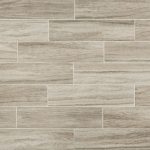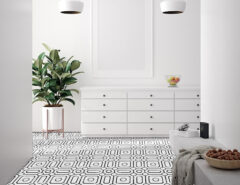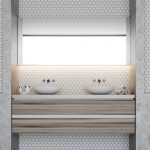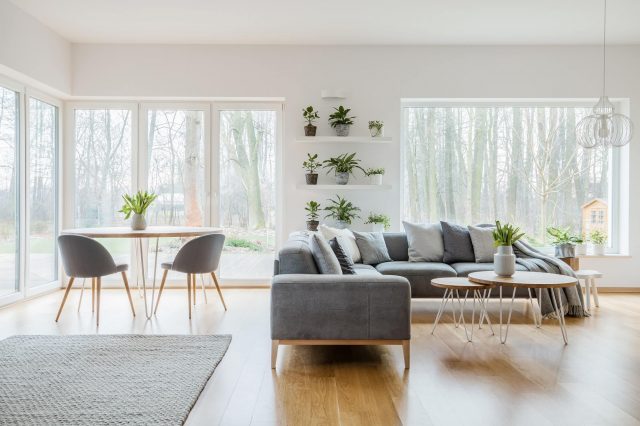
The majority of our lives are spent in our homes. Breathe easy in your sanctuary by promoting clean air with low VOC building materials, paints, and home furnishings. With more of a focus on green living, a focus on clean air should go hand-in-hand with discovering natural and sustainable products. With the flooring being such an expansive part of the home, it is especially important to make this plentiful component of your home as healthy as possible. Selecting low VOC flooring is especially important when decorating or choosing flooring for a kids’ room.
What Does Low VOC Mean?
The term VOC is an abbreviation for Volatile Organic Compounds. These substances can be found in everything from paints and stains to cleansers and building materials. Although they occur in solid and liquid substances, they are emitted as gasses into the air, affecting the overall air quality and raising a host of health concerns. Depending upon the type of material, the substances released into the air can be anything from ethanol to formaldehyde.
The Dangers of VOC Exposure
In the short term, VOCs can trigger asthma, upper respiratory issues, headaches, and eye irritations, nose irritations, and even infections. When someone is exposed to VOCs for a longer period of time, more serious issues can arise, including liver damage, kidney damage, central nervous system issues, and even cancer. The severity of symptoms is often correlated to the amount of exposure to the toxic compounds in the air.
Common Sources of VOCs
Creating a low VOC home starts by identifying the common sources of VOCs. These compounds commonly occur in:
- Paint
- Air Fresheners
- Vinyl Flooring
- Synthetic Carpet
- Vinyl Upholstery
- Oil-Based Finishes
- Flooring Adhesives
- Wallpaper Adhesives
- Household Cleansers
- Sealed Hardwood Flooring
This doesn’t mean that you immediately have to rip out existing hardwood floors or refinish heirloom furniture. Products emit fewer and fewer VOCs as they age, so older pieces are fine to keep. Newer products that are high in VOCs should be avoided because they will do the most damage to indoor air quality.
Making Healthier Choices
Fortunately, there are easy changes that can drastically improve air quality. As a rule, water-based paints and finishes are a much healthier alternative to oil-based paints and stains. When choosing carpeting and upholstery, look for natural materials instead of synthetics.
Cotton, jute, linen, silk, and wool are all lower in VOCs than vinyl and man-made materials. In the bathroom, ceramic tile, glass tile, linoleum, bamboo, and cork are all free and clear of VOCs. Sometimes, the VOCs aren’t in the products themselves, but rather the adhesives used for installation. Low VOC flooring vinyl planks are suitable for every room in the home, including the wet areas such as the bathroom. Take care to select low VOC adhesives to ensure an exceptional air quality.
What to Look For
When you are looking to limit the VOCs in the home. You will notice a few different labels. Understanding the differences between them will help you determine which ones make the best choice for your space.
- Low VOC: When a product is marked “low VOC” have a much lower emission of gasses. In order to receive this rating, they must contain less than 50 grams per liter of VOCs. In terms of paint, you may also see Low-VOC paint referred to as Low-Odor paint.
- Zero VOC: When a product receives a rating of Zero VOCs it actually means that it can contain anywhere from 0 to 5 grams per liter of VOCs. Most of the time, products that contain zero VOCs are completely natural or crafted of natural materials.
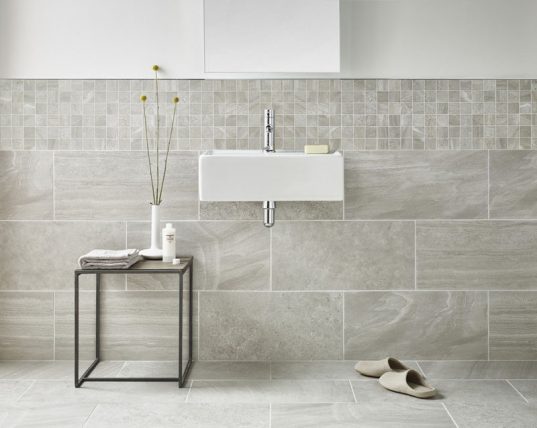
Who Does Low VOC Benefit?
Limiting the amount of VOCs in the home improves the air quality, which is essential since most people spend up to 70 percent of their time inside their home. With a focus on creating a healthier home, many manufacturers are creating products that minimize VOCs in the home, improving air quality. Some of these new products even work to improve the air quality by capturing VOCs that already exist in the air and converting them to inert gases. Low VOC or No VOC products aren’t necessarily more expensive than products that are high VOCs.
Immediate Benefits to a Low VOC Home
Naturally, anyone who is already susceptible to asthma, allergies, or upper respiratory ailments is especially susceptible to VOC sensitivity. You don’t have to have a pre-existing condition to feel the ramifications of VOCs. Children, adults, and even pets will benefit from making changes that improve overall air quality. When you fill a home with low VOC products and materials, expect to notice immediate improvements to respiratory health and allergies that were problematic before. Choosing the right flooring for allergies, like low VOC flooring, and using it in the bedroom will help to keep you healthy as you sleep.
Prolonged Benefits to a Low VOC Home
When a home is an air-quality retreat for the senses, even people with pre-existing conditions may notice that they can go off of or reduce doses for allergy medications and respiratory medications. Installing low VOC flooring can also help to prevent many ailments from forming due to prolonged exposure to harmful elements.
When it comes to decorating your home, finding the balance between style and health is essential. With so many low VOC materials available, it is easy to find the products that create the visual look of your dreams while promoting clean and healthy air for yourself and your loved ones. Whether you are remodeling an existing home or decorating new construction, taking the time to look for VOC options will result in a home that promotes heath for the whole family.








